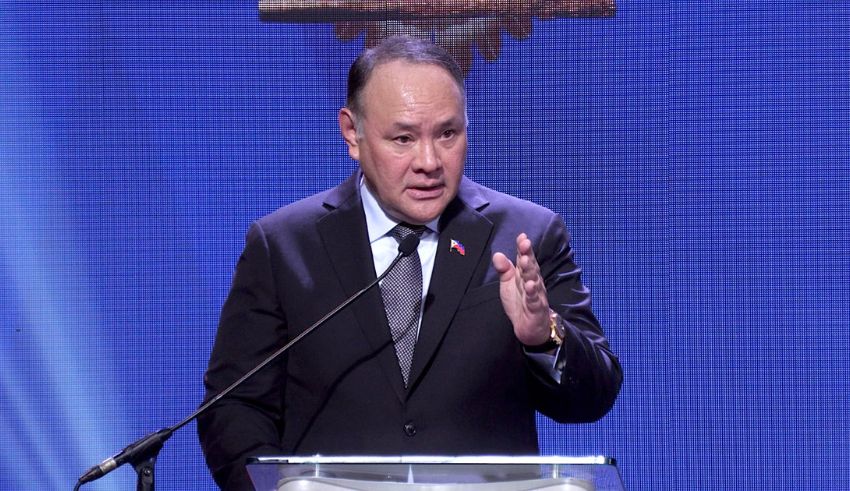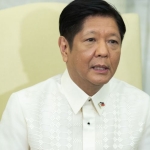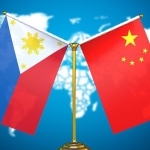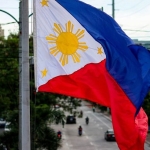
The Philippines and China have a long-standing and complicated relationship, marked by both cooperation and conflict. The two countries have maintained diplomatic and economic ties, and have worked together on various issues, such as the Covid-19 pandemic, the Belt and Road Initiative, and the ASEAN-China dialogue.
However, the two countries have also clashed over the South China Sea, where they have overlapping territorial and maritime claims, and where China has built and militarized artificial islands.
The Philippines and China have also differed on the issue of Taiwan, a self-governing island that China considers as a breakaway province that must be reunited with the mainland.
The Philippines, like most countries, follows the “One China policy“, which recognizes Beijing as the sole legitimate government of China, and does not have official relations with Taipei. However, the Philippines also maintains unofficial and informal contacts with Taiwan, which is a major trading partner and a source of migrant workers and tourists.
The issue of Taiwan has become a source of tension and controversy between the Philippines and China, especially after the Philippine President Ferdinand “Bongbong” Marcos Jr. congratulated Taiwan’s President-elect Lai Ching-te on his election victory in January 2024. Marcos, who is known for his pro-China stance and his close ties with Chinese President Xi Jinping, said on X (formerly Twitter): “On behalf of the Filipino people, I congratulate President-elect Lai Ching-te on his election as Taiwan’s next President.”¹
The trigger and the reaction of the issue
The issue was triggered by the remarks of the Chinese Foreign Ministry spokesperson Mao Ning, who responded to Marcos’ congratulatory message by saying: “We advise Mr. Marcos to read more books and learn more about the history and reality of the Taiwan question, and not to make irresponsible and erroneous remarks on issues concerning China’s core interests.”
The reaction of the Philippines to the issue was to express its outrage and indignation over the remarks, and to rebuke and warn China for its disrespect and interference.
The Philippine Defense Secretary Gilberto Teodoro Jr. said that the remarks were “a low and gutter level talk” and “a gross interference in the Philippines’ internal affairs”. He also said that the remarks were “unfortunate, but unsurprising”, and that they reflected China’s “incompatibility with the democratic way of life” of the Philippines.
The Philippine Foreign Affairs Secretary Teodoro Locsin Jr. also said that the remarks were “unacceptable and uncalled for”, and that they violated the diplomatic etiquette and norms. He also said that the remarks were “a sign of China’s insecurity and weakness”, and that they showed China’s “lack of confidence and credibility” in the region.
The Philippine Presidential Spokesperson Harry Roque also said that the remarks were “an insult and an affront” to the Philippine President and the Filipino people, and that they deserved an apology and an explanation from China. He also said that the remarks were “a matter of personal expression and opinion” of the Philippine President, and that they did not affect the Philippines’ adherence to the One China policy.
Keep Reading
The implications and the prospects of the issue
The issue has implications and prospects for the future of the Philippines and China, as well as for regional and international relations and security. On one hand, the issue could worsen and damage the relations and the trust between the Philippines and China, and affect their cooperation and partnership on various issues, such as the South China Sea, the Covid-19 pandemic, and the Belt and Road Initiative. On the other hand, the issue could also improve and enhance the communication and the understanding between the Philippines and China, and create more opportunities for dialogue and cooperation on common interests and challenges, such as economic development, the counter-terrorism, and climate change.
The issue also depends on the actions and the responses of the Philippines, China, and the other parties involved, such as Taiwan, the US, and the ASEAN. They could either support or oppose the remarks and the congratulations, and either encourage or discourage the dialogue and the engagement between the Philippines and China, and between China and Taiwan. They could also propose or oppose additional measures or initiatives to address and resolve the issue and to maintain and promote the peace and the stability in the region and the world




























